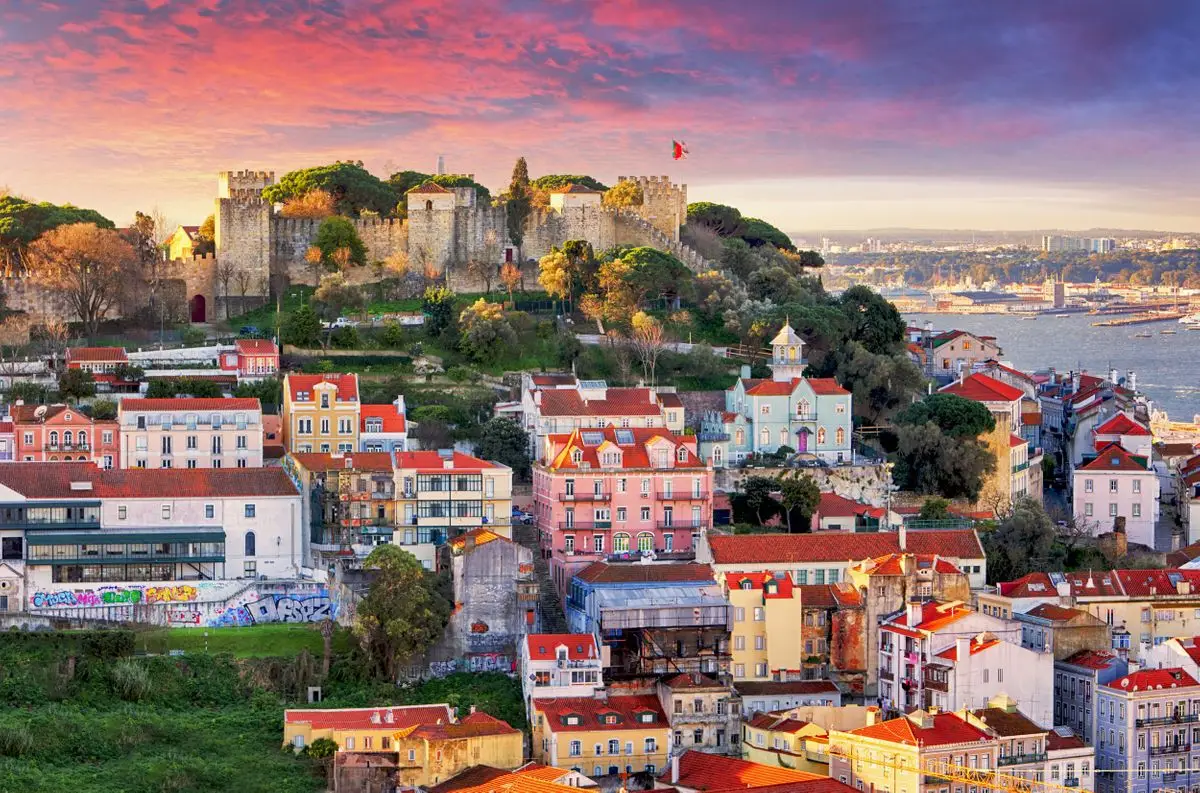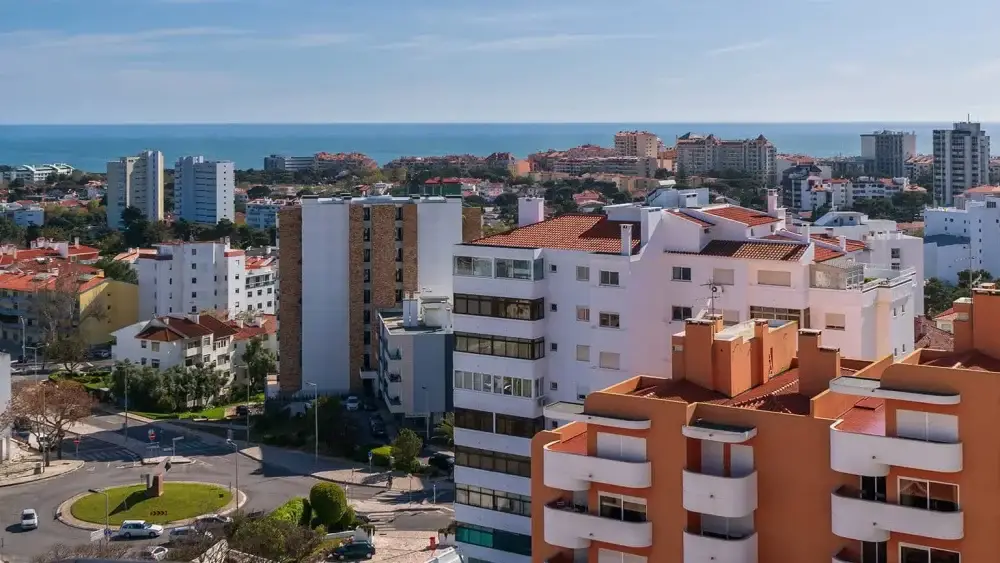Portugal remains one of the most affordable destinations in Western Europe for both investment and living. Unlike Lisbon or Porto, there are dozens of cozy, underrated regions in the country where you can live comfortably without overpaying. Today we will look at the cities in Portugal for buying affordable housing, where developed infrastructure, low prices, and a decent standard of living are combined.
This choice is especially relevant for those planning to immigrate to Portugal inexpensively, work remotely, or establish a base for obtaining a residence permit on favorable terms.

Bragança — a northern fortress with affordable prices
Bragança is located in the northeast of the country and is among the quietest and most affordable cities in Portugal to live in. The average price per square meter is around 700–900 euros. You can rent an apartment here for 300–400 euros per month.
The area is surrounded by mountains and greenery, known for its tranquility and clean air. Bragança is suitable for those who appreciate seclusion and a moderate pace. Thanks to the university, many young people live here, and the level of infrastructure and transportation is sufficient for everyday comfort.
Castelo Branco — a central location between the capital and the border
The region, conveniently located between Lisbon and the border with Spain, always attracts interest due to its advantageous geography. Castelo Branco confidently ranks among the top five in searches for “cities in Portugal for buying affordable housing.” Here you can buy an apartment for 60–70 thousand euros, and the cost of individual houses starts from 90 thousand euros.
Living in Castelo Branco is characterized by low costs not only for housing but also for everyday needs. Local authorities are actively improving the city’s infrastructure, implementing special programs for family resettlement.
Viseu — a blend of traditions and convenience
Located in the northeast of the country, Viseu is a place with a rich history, wide streets, and comfortable conditions. Budget-friendly cities in Portugal for living rarely offer such infrastructure at such prices: the price per square meter is within 1000 euros.
Viseu stands out for its high level of safety, developed education system, and accessible healthcare. It attracts not only Portuguese from major centers but also foreigners looking to save money without sacrificing comfort.
Vila Real — a region on the hills with an affordable market
Vila Real is cozily situated in the north of Portugal, in the picturesque Trás-os-Montes region, offering housing at affordable prices starting from 700 euros per square meter. It is quite possible to buy a spacious house here at a cost lower than that of a compact studio in the country’s capital.
Cities in Portugal for buying affordable housing, including Vila Real, offer the opportunity for a comfortable move to Europe with minimal expenses. The area combines attractive nature, a peaceful atmosphere, well-developed roads, and proximity to renowned wineries.
Leiria — a university center with moderate prices
Leiria is a territory between Lisbon and Porto. The average cost of an apartment is 1000–1300 euros per square meter, but lower offers can be found, especially in the suburbs.
For young people and families, inexpensive immigration to Portugal is possible through such options. The presence of universities, a stable job market, and accessible transportation make Leiria attractive even on a limited budget.
Guarda — a high-altitude area with low prices
The highest located area in the country, surrounded by the Serra da Estrela mountains, attracts with its winters, tranquility, and economical living. Affordable cities in Portugal for relocation definitely include Guarda: here, you can buy a square meter for less than 800 euros.
The region is not overcrowded with tourists, and the local population is known for its hospitality. An excellent choice for retirees, introverts, freelancers, and families seeking minimal expenses.
Beja — a region with an Andalusian accent
Beja is the center of the agricultural region of Alentejo. The climate here is hot and dry, and the architecture resembles Andalusian towns. Real estate in Beja is affordable even for investors with limited funds: a house with a garden can be purchased for 70–90 thousand euros.
Cities in Portugal for buying affordable housing located in the southern part of the country offer a chance to move to a warm climate and avoid overpriced markets. Beja is one of those destinations that is gaining popularity among expats.
Évora — historical coziness with a Roman character
Évora attracts attention with deep cultural traditions dating back to the Roman era. Being included in the UNESCO World Heritage list has not affected its affordability. Living here is much cheaper than in popular resort cities in Portugal.
Budget-friendly cities in Portugal for living, including Évora, allow you to not just move but enjoy comfort without depriving yourself of the simplest pleasures. Spacious two-bedroom apartments here can be purchased for around 80–90 thousand euros.
Estremoz — market, marble, and tranquility
Estremoz is famous for its unique marble extraction, which has earned it the reputation of the “marble heart” of Portugal. The regional market of Estremoz is one of the most vibrant and atmospheric in the country.
At the same time, real estate in the city is surprisingly affordable. The cost of apartments and houses starts from just 50 thousand euros, making the city attractive for budget immigration.
Chaves — a thermal option for health
Chaves, located in the northeast of Portugal near the Spanish border, is famous for its thermal springs that attract people caring for their health. That’s why it regularly appears in rankings for “cities in Portugal for buying affordable housing.” The average price per square meter of housing here ranges from 800 to 1000 euros, and you can rent an apartment for a month for 250 euros.
Main reasons to choose affordable regions
Moving to the capital is expensive and stressful. Below is a list of reasons why it is worth considering less popular but promising destinations:
- minimal investment when buying;
- affordable rent, utility costs;
- peaceful life without crowds of tourists;
- high safety;
- good roads and public transportation;
- scenic landscapes and ecological environment.
This choice is especially relevant for retirees, freelancers, families with children, and investors looking for growth prospects.

Isn’t it time to choose a city in Portugal for buying affordable housing?
Many cities in Portugal for buying affordable housing offer a real alternative to overheated markets: tranquility, accessibility, good quality services, and minimal costs.
Choosing the right location allows you to start European life without budget pressure, with the possibility of maintaining comfort, health, and stability.
 en
en  ru
ru  de
de  ar
ar  es
es  nl
nl  hi
hi  fr
fr  it
it  pt
pt  el
el 












